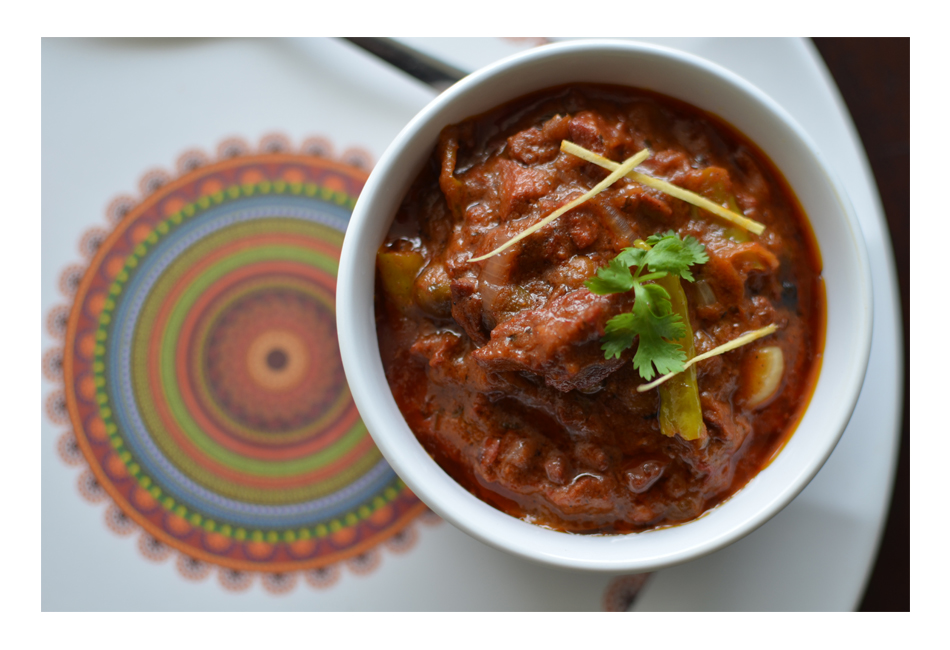Download Free Vegan Starter Kit -
.png)
The Plant-based Opportunity is Ripe for F&B. Here's Why.
11th January, 2024
The Indian plant-based dairy market is expected to grow from $21 million to $63.9 million at a CAGR of 20.7%, 1.4x the growth of the Indian animal-based dairy market, as per a report published by ASSOCHAM and Vegan First in February 2023.
Additionally, according to a 2021 report by PBFIA & EY, plant-based milk and derivatives accounted for 65% of the Indian plant-based F&B market. A whopping number of Indians have been switching to vegan milks, citing health, environmental and animal welfare concerns.
Such a high level of movement in this space warrants a deeper dive, don’t you think? So, what exactly are vegan milks? Why are they gaining rapid popularity? What are the types of plant-based milks? We answer all these and more in this article.
Types of technologies used for making plant-based milk or milk alternatives
Multiple technologies out there allow the creation of milk alternatives. But not all of these can be considered to give a vegan output.
1. Plant-based: Technologies that use plant sources like nuts, grains, seeds, etc to make milk. This technology is 100% vegan.
2. Precision fermentation: This method is gaining popularity with many new vegan milk brands. An Indian precision fermentation company even raised $4 million in funding in April 2023! Precision fermentation is currently used to make insulin, vitamins and beer. The process feeds water and carbs to engineered yeast and fungi inside a stainless steel bioreactor to make them generate milk proteins like casein and whey. These proteins can then be used to make dairy replicas of milk and products like cheese.
3. Plant molecular farming: This technology is very similar to precision fermentation. But the difference is that instead of microbes acting as host bodies to create proteins in a bioreactor, plants are genetically engineered to express those same milk proteins. These proteins then have to be extracted from the plants and purified. This technology is vegan.
Types of processes for making vegan milk in a factory:
Standard process (followed by a majority of alternate milk makers): There are 2 standard options — wet processing and dry processing.
- Wet processing: The main ingredient (nut, seed, cereal, grain, legumes/ pulses) is soaked for up to 12 hours. It is then blended and filtered for a smooth consistency. For some ingredients, enzymes may be added during soaking while for others, blanching may be used to get better results.
- Dry processing: In the dry process, the main ingredient is turned into powdered flour which is then further processed to separate protein, fibre and starch. The protein isolate is then hydrated to make milk.
What is vegan (plant-based) milk and how is it made?
Vegan milk is milk made from plant sources such as nuts, seeds, grains, pulses, legumes, cereals, coconut or a combination of them. Since it is made from a plant source, it completely bypasses emission-causing and climate-damaging livestock farming.
Why do many prefer vegan milk?
A Rakuten Insights report found that for plant-based alternatives as a whole, Indians gave the following reasons for choosing or not choosing them:
.png)
As it can be seen, the biggest reason for preferring plant-based milk is animal welfare. India is not just the largest milk producer in the world, but is also among the top 5 beef exporters worldwide. The correlation is obvious to many.
The second reason is health. About 60-65% Indians are lactose intolerant. Many have milk allergies or are facing hormonal issues. When they gain awareness about the extent of antibiotics, hormones, pus, etc. present in dairy, their obvious next step is usually to quit dairy.
29% were concerned with livestock farming’s environmental impact. Rightly so, in 2019, 36% of India’s Greenhouse gas (GHG) emissions was from agri-food systems, dairy farming being a large chunk of it, as per FAO. Despite the reasons given above, early adopters of plant-based milks are not exclusive users; 90% of current plant-based milk consumers have also used animal-derived milk in the last 12 months as per a PBFIA report published in 2022.
Is vegan milk healthy?
Topline answer is that yes, vegan milk options are healthy. While unfortified plant-based milks contain less protein and nutrients compared to cow milk, they have fibre, critical bioactive components, fewer calories, no growth hormones, no antibiotics, no pus, etc., thus making them healthier compared to dairy milk.
Though protein is an important macronutrient, fibre is essential in preventing many health risks like Type 2 diabetes, stroke, BP, inflammation, etc. You might be surprised to know that fibre is found only in plant foods and not at all in dairy, meat or eggs. Hence, the presence of fibre is another strong benefit of milk alternatives.
Additionally, the calcium content of plant-based milks could be similar to cow’s milk if formulated in that way. E.g. almond and cow’s milk both have around 120 milligrams per 100ml.
As per the International Journal of Health Sciences and Research report from 2022, the broad benefits of the most popular vegan milks are:
.png)
The report also shares a comparison of common plant milk alternatives across important parameters such as fat, protein, carbohydrates, etc.
Most plant-based milks available in the market these days are fortified with calcium and vitamins to provide holistic nutrition.
Over and above these benefits common to most vegan milks, each type of vegan milk alternative has some exclusive benefits too. For instance, rice milk is the most hypoallergenic milk right now. Soy milk reduces menopausal symptoms.
To summarise from the nutritional point of view, if you eat a diverse diet (legumes, pulses, nuts, seeds, etc.), you need not worry about deficiencies popping up by replacing dairy milk with vegan milk.
.png)
Points to remember while formulating plant-based milk:
Q. What’s your aim?
1. To replicate the taste of dairy as far as possible or..
2. To create an acquired taste
Some companies are trying to replicate milk directly whereas others want it to be an acquired taste.
Q. What's your approach?
1. Purist (one hero ingredient ) or
2. Hybrid (multiple ingredients)
Types of vegan milks
Oats, almond, soy, rice, and coconut milk are the most popular vegan milks commercially available and used. The table below from Institute Of Physics lists some popular plant-based milk sources:
However, the sector is very dynamic, with newer plant-milk sources such as millets, macadamia, banana, potatoes, etc. getting added rapidly.
Another extremely popular source of milk missing from the table above is grains, specifically oats. It is the fastest-growing type of vegan milk at present. In the US, oat milk reportedly grew 44 times in popularity in just three years between 2019 and 2022. Other grains like barley, buckwheat, etc. are also being used to make milk alternatives.
Vegan Milk Options in India
In India, it was observed that the consumption of soy milk and almond milk was highest in the last 12 months (56% and 54%) respectively, followed by oat milk (29%) (IJHSR, November 2022). We are fortunate to have an ever-increasing variety of plant-based milks in India. Some of the popular ones are:
- Soya milk
- Almond milk
- Oats milk
- Coconut milk
- Cashew milk
- Rice milk
- Millet milk
- Hemp milk
We have given more details about the various vegan milk options in India in an earlier article. Besides these straightforward options, our Indian market is bustling with unique combination of vegan milks like:
- Grain and sprouted millet milk (a first in the world)
- Oats, cowpeas, and moong
- Hazelnut and rice
- Walnut and rice
How to make vegan milk at home?
Making vegan milk at home is easy and follows a similar process as that in the factory. Since it is easy enough to make vegan milk at home, it is a good option for those not happy with added sugars or stabilisers in packaged plant milks. Also, DIY allows you to add the flavour of your choice and save some money too.
While some core ingredients need to be soaked before blending, others can directly be put in the blender. Along with a sufficient amount of water, you can add any flavour of your choice such as cocoa, coffee, banana, etc. Squeeze out the blended liquid using a nut milk bag or a cheesecloth, boil it and voila! Your vegan milk is ready.
Cashew and macadamia milk are the only nut milks that don’t necessarily need straining. For 7 of the top plant-based milks, check out the DIY recipes you can easily follow at home.
Future of Vegan Milk Industry in India
69% of plant-based milk consumers expect to increase their consumption of it in the future. Analysing the potential growth for alternative milk and meat, Palak Mehta, Founder & CEO, Vegan First expects that “within the next decade, 20% of meat, eggs, and dairy consumed globally will be plant-based. This is just the beginning.”
According to a report by Future Market Insights, the plant-based milk market in India is projected to grow at a CAGR of 6.2% from 2023 to 2033. ASSOCHAM and Vegan First report adds that the export market for Indian plant-based milk by 2030 is projected to range from $59 million to $244 million (Rs. 459 crore to 1889 crore). As companies continue to innovate and offer new and exciting options, demand for vegan milk is expected to keep rising further.
AUTHOR

trending
Be a Vegan First Informer
Send us buzzworthy news and updates
related
Explore
Contact Us
About Us
Stay Connected
Copyright ⓒ 2017-2023. VEGAN PASSION PRIVATE LIMITED. All Rights reserved.
For more information, please write to hello@veganfirst.com
Registered Office Address: 55, 2nd floor, lane 2, Westend Marg, Saidullajab, Near Saket Metro Station, New Delhi, Gadaipur, New Delhi South West Delhi, DL

2.png)

.png)

.png)
2.png)
2.png)
2.png)

1.png)








